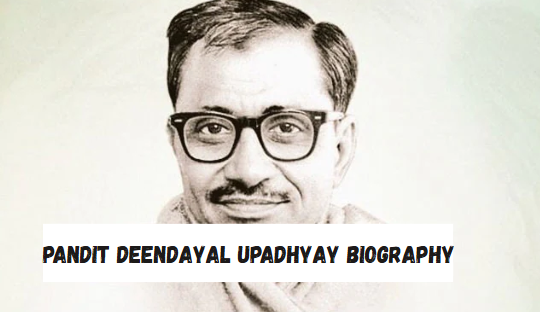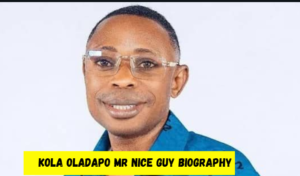
| Field | Details |
|---|---|
| Full Name | Deendayal Upadhyaya |
| Popularly Known As | Pandit Deendayal Upadhyay / Panditji |
| Date of Birth | 25 September 1916 |
| Birthplace | Nagla Chandraban, Mathura District, Uttar Pradesh (now called Deendayal Dham) |
| Parents | Father: Bhagwati Prasad Upadhyaya (astrologer) Mother: Rampyari Upadhyaya |
| Education | High School (Sikar, Rajasthan); Intermediate at Pilani; BA from Sanatan Dharma College, Kanpur; pursued MA at St. John’s College, Agra (not completed) |
| Occupation | Politician, thinker, ideologue |
| Known For | Integral Humanism doctrine, leader of Bharatiya Jana Sangh |
| Date of Passing | 11 February 1968 |
| Cause of Passing | Found dead under mysterious circumstances on a train near Mughal Sarai (now Deendayal Upadhyay Junction) |
Who was Pandit Deendayal Upadhyay?
Pandit Deendayal Upadhyay (1916–1968) was a respected Indian political leader, thinker, and ideologue of the Bharatiya Jana Sangh (BJS), the party that later evolved into the Bharatiya Janata Party (BJP). Revered as Panditji, he was the principal architect of the party’s political philosophy of Integral Humanism, a doctrine that emphasized cultural nationalism, Gandhian principles like sarvodaya (welfare of all), and swadeshi (self-sufficiency).
He is remembered not just as a politician but also as a writer, philosopher, and journalist, who dedicated his life to shaping India’s socio-political thought in the years following independence.
Birthplace and Early Life
Deendayal Upadhyay was born on 25 September 1916 in Nagla Chandraban village of Mathura district, Uttar Pradesh — a place that has since been renamed Deendayal Dham in his honor.
He was born into a Brahmin family. His father, Bhagwati Prasad Upadhyaya, was an astrologer, while his mother, Rampyari Upadhyaya, was a devout homemaker. Tragedy struck early in his life when he lost both parents by the age of eight, after which he was raised by his maternal uncle and aunt.
Education
Despite hardships, Deendayal Upadhyay excelled in academics:
-
Schooling: He studied in Sikar, Rajasthan, where the Maharaja of Sikar recognized his brilliance by awarding him a gold medal, Rs. 250 for books, and a scholarship of Rs. 10 per month.
-
Intermediate: He completed his intermediate studies in Pilani (now Birla School, Pilani).
-
Graduation: He earned a BA in English literature from Sanatan Dharma College, Kanpur.
-
Postgraduate studies: In 1939, he moved to Agra and joined St. John’s College for a master’s degree in English literature. However, due to financial and family constraints, he could not complete his MA.
Interestingly, he earned the nickname Panditji when he appeared for the civil services examination dressed in traditional dhoti-kurta and cap, symbolizing his cultural rootedness.
Political Journey
Deendayal Upadhyay’s political journey was deeply tied to the Rashtriya Swayamsevak Sangh (RSS) and later the Bharatiya Jana Sangh (BJS):
-
He began his public life as a member of the RSS, which shaped his ideology and organizational skills.
-
In the 1940s, he started publishing “Rashtra Dharma”, a monthly journal meant to promote cultural nationalism and Hindutva thought.
-
Rising through the ranks of the Jana Sangh, he became its president in 1967, just months before his passing.
-
He was the principal architect of the party’s doctrine of Integral Humanism, which sought to blend tradition with modernity and emphasized self-reliance, decentralization, and moral leadership.
Cause of Passing
On 11 February 1968, Deendayal Upadhyay was found dead near Mughal Sarai railway station (today renamed Pandit Deendayal Upadhyay Junction) while traveling by train. He was just 51 years old.
His passing was shrouded in mystery, with various theories about whether it was an accident, natural cause, or foul play. Officially, his death was never fully resolved, and it remains one of the most debated episodes in Indian political history.
Legacy
-
His doctrine of Integral Humanism continues to influence the ideology of the BJP and many of its leaders.
-
Institutions, roads, and towns have been named after him, including the Deendayal Upadhyay Junction in Uttar Pradesh.
-
He is remembered as a thinker who sought to build a uniquely Indian model of development rooted in cultural values rather than borrowed Western ideologies.
FAQs
Q: When and where was Pandit Deendayal Upadhyay born?
A: He was born on 25 September 1916 in Nagla Chandraban village, Mathura district, Uttar Pradesh.
Q: What was his educational background?
A: He studied in Sikar and Pilani, earned a BA from Sanatan Dharma College in Kanpur, and pursued MA in English literature at St. John’s College, Agra (but could not complete it).
Q: What was his role in politics?
A: He was a leader of the Bharatiya Jana Sangh and formulated its official doctrine of Integral Humanism.
Q: How did Pandit Deendayal Upadhyay pass away?
A: He was found dead near Mughal Sarai railway station on 11 February 1968 under mysterious circumstances.
Q: What is his legacy?
A: He is remembered for Integral Humanism, his role in shaping the Jana Sangh (precursor to BJP), and his vision for an India rooted in self-reliance and cultural values.
Conclusion
Pandit Deendayal Upadhyay’s life was one of simplicity, dedication, and visionary thinking. Despite personal hardships and financial struggles, he emerged as a profound political philosopher who sought to define India’s development path through the lens of Integral Humanism.
His sudden passing in 1968 at the age of 51 left a void in Indian politics, but his ideology continues to shape discussions on governance, culture, and self-reliance in modern India.





